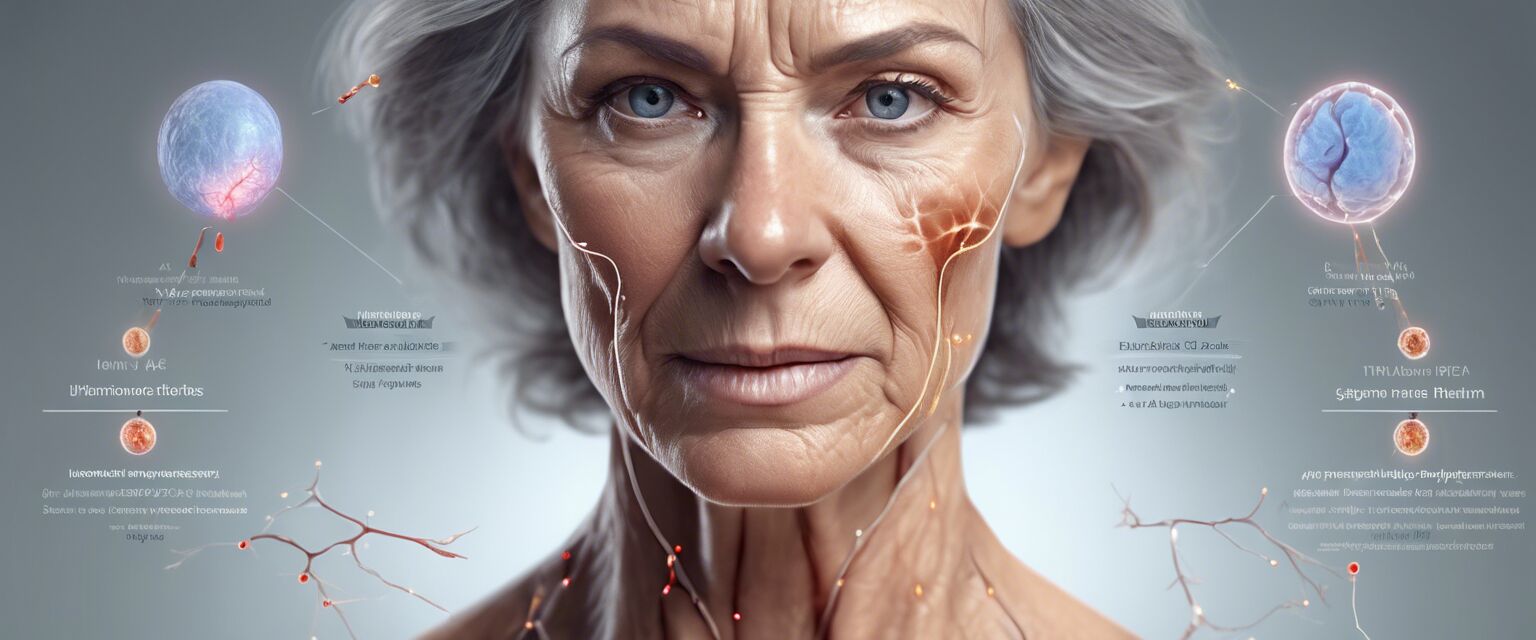
Menopause Symptoms
Key Takeaways
- Menopause symptoms vary but commonly include hot flashes, mood changes, and sleep disturbances.
- Understanding symptoms can aid in managing them effectively.
- Emotional health is as important as physical changes during menopause.
- Consultation with healthcare professionals for personalized guidance is recommended.
Menopause is a natural stage in a woman's life, typically occurring between the ages of 45 and 55. However, its onset can differ significantly from one individual to another. During this period, many women experience a range of symptoms that can impact their daily lives. Understanding these symptoms is crucial for managing them effectively. In this article, we will dive into common menopause symptoms, both physical and emotional, so you can feel more informed and empowered.
Common physical symptoms
Physical symptoms during menopause can vary widely. Hereâs a closer look at some of the most common ones:
| Symptom | Description |
|---|---|
| Hot flashes | A sudden feeling of warmth that spreads throughout the body, often accompanied by sweating and increased heart rate. |
| Night sweats | Hot flashes that occur during sleep, leading to discomfort and disrupted sleep patterns. |
| Weight gain | Many women notice changes in body composition, including an increase in weight around the abdomen. |
| Joint stiffness | Some women experience stiffness or pain in joints due to hormonal changes. |
| Vaginal dryness | Reduced estrogen levels can lead to decreased moisture, causing discomfort during activities like sexual intercourse. |

Emotional symptoms
In addition to physical symptoms, many women experience various emotional changes during menopause. Hereâs a breakdown:
| Symptom | Description |
|---|---|
| Mood swings | Rapid changes in mood, which can include irritability, sadness, or anxiety. |
| Depression | Some women may experience feelings of sadness or hopelessness. |
| Confusion or forgetfulness | Difficulty concentrating or memory lapses can occur for some. |
| Reduced libido | Decreased sexual desire may be noted due to hormonal fluctuations. |

Effects of menopause on daily life
The symptoms of menopause can have significant effects on various aspects of a woman's daily life:
- Work-life: Hot flashes and mood changes can make it challenging to focus at work.
- Social life: Women may feel less inclined to engage in social activities due to embarrassment over symptoms.
- Relationships: Changes in libido and emotional fluctuations can affect relationships with partners.
- Physical health: Symptoms may lead to reduced physical activity, influencing overall health.
Managing menopause symptoms
While menopause is a natural part of life, there are various strategies that may help manage the symptoms:
- Consultation: Speak with a healthcare professional for personalized advice.
- Lifestyle changes: Regular exercise and a healthy diet can contribute to overall well-being.
- Support groups: Connecting with others experiencing similar symptoms can provide emotional support.
- Mindfulness and relaxation: Techniques such as yoga and meditation can promote emotional balance.
Tips for managing daily life during menopause
- Keep a symptom diary to track changes and triggers.
- Stay hydrated to help manage hot flashes.
- Consider herbal supplements after discussing with a healthcare provider.
- Get enough sleep and establish a calming nighttime routine.
- Engage in activities that promote relaxation and joy.
Resources for further information
For further information regarding menopause symptoms and support, consider exploring the following pages:
- Hormonal Support - Explore products that may provide relief during menopause.
- Mental Well-being - Discover strategies to maintain emotional health.
- Sleep Aids - Learn about sleep solutions that might help disturbed nights.
- Fitness and Weight Management - Check out health and fitness routines that can help during this time.
- Skincare - Find ways to take care of your skin during menopause.
Pros
- Natural phase of life
- A chance to explore new health routines
- Increased awareness of emotional well-being
Cons
- Disruption of daily activities
- Potential anxiety and mood changes
- Physical discomfort
Conclusion
Understanding menopause symptoms is the first step in managing this natural phase of life. By focusing on both physical and emotional health, women can navigate this transition more smoothly. Remember that seeking guidance from health care providers is essential for personalized care and support. Embrace this change as an opportunity for growth and self-discovery.








